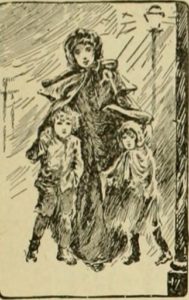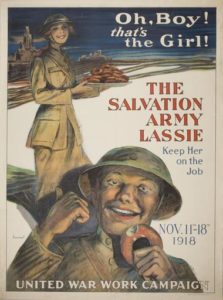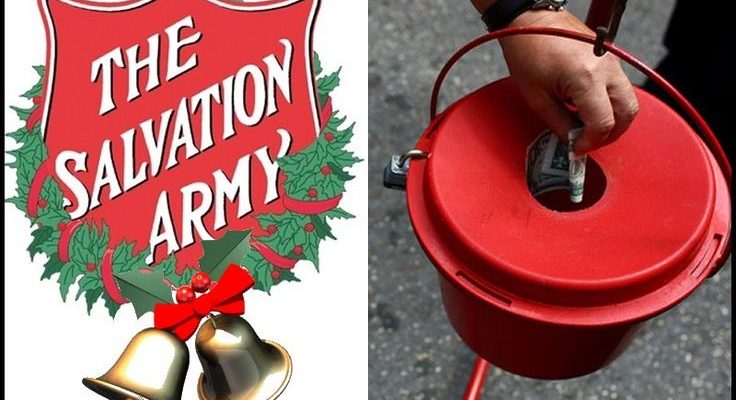 Robert Fulghum, famous American humorist most noted for his book All I Ever Needed to Know I Learned in Kindergarten, reminisced that if his father was ever going to become a Christian, he would join The Salvation Army.
Robert Fulghum, famous American humorist most noted for his book All I Ever Needed to Know I Learned in Kindergarten, reminisced that if his father was ever going to become a Christian, he would join The Salvation Army.
It seems The Salvation Army practices what it preaches.
Indeed, Fulghum’s father would temporarily join The Salvation Army every year during Christmas, volunteering to ring a bell tending the Christmas kettle for donations.
volunteering to ring a bell tending the Christmas kettle for donations.
After his dad died, Fulghum found out why his father was committed to The Salvation Army: the Fulghum family home had burned down, leaving the family destitute. But the Salvation Army came to the rescue, providing shelter, then financial assistance toward a new home.
Humiliated by his poverty, Robert’s father never talked about the event.
 But later Fulghum found out why his dad rang that bell at Christmas. So Robert Fulghum found himself ringing a bell beside a red kettle all because The Salvation Army first helped his family when they were in need. [1]
But later Fulghum found out why his dad rang that bell at Christmas. So Robert Fulghum found himself ringing a bell beside a red kettle all because The Salvation Army first helped his family when they were in need. [1]
You see, wherever there is trouble, you’ll find the Salvation Army there. Operating in almost 100 countries, tens of thousands of committed Salvation Army “soldiers” fight disease, poverty, homelessness, alcoholism, drug addiction, and the abuse of women.
Put simply, if there is a need, The Salvation Army is there. Religious belief, ethnicity, nationality,  sexual identity, or political persuasion does not matter; just human need.
sexual identity, or political persuasion does not matter; just human need.
If a person goes to The Salvation Army soup kitchen for help the Christian group asks for only one thing.
 Before they feed you a meal, you need to listen to a sermon explaining the Christian message. What is that message? Jesus’ sacrifice on the cross for our sin is the reason why Christians sacrifice to meet human need. The Salvation Army is committed to helping others because Jesus first helped us.
Before they feed you a meal, you need to listen to a sermon explaining the Christian message. What is that message? Jesus’ sacrifice on the cross for our sin is the reason why Christians sacrifice to meet human need. The Salvation Army is committed to helping others because Jesus first helped us.
You see, human help may feed the stomach, but Jesus feeds the soul.
 We have this original poster from 1918 which can be seen above our front door as you enter our home.
We have this original poster from 1918 which can be seen above our front door as you enter our home.
[1] From Robert Fulghum Uh-Oh: Some Observations from Both Sides of the Refrigerator Door. Villard, 1991, pp. 166-74. A large part of this writing was taken from my original 2011 “Army” entry here.
Picture Credit: Snappy Goat, Amazon Cover of Uh-Oh

